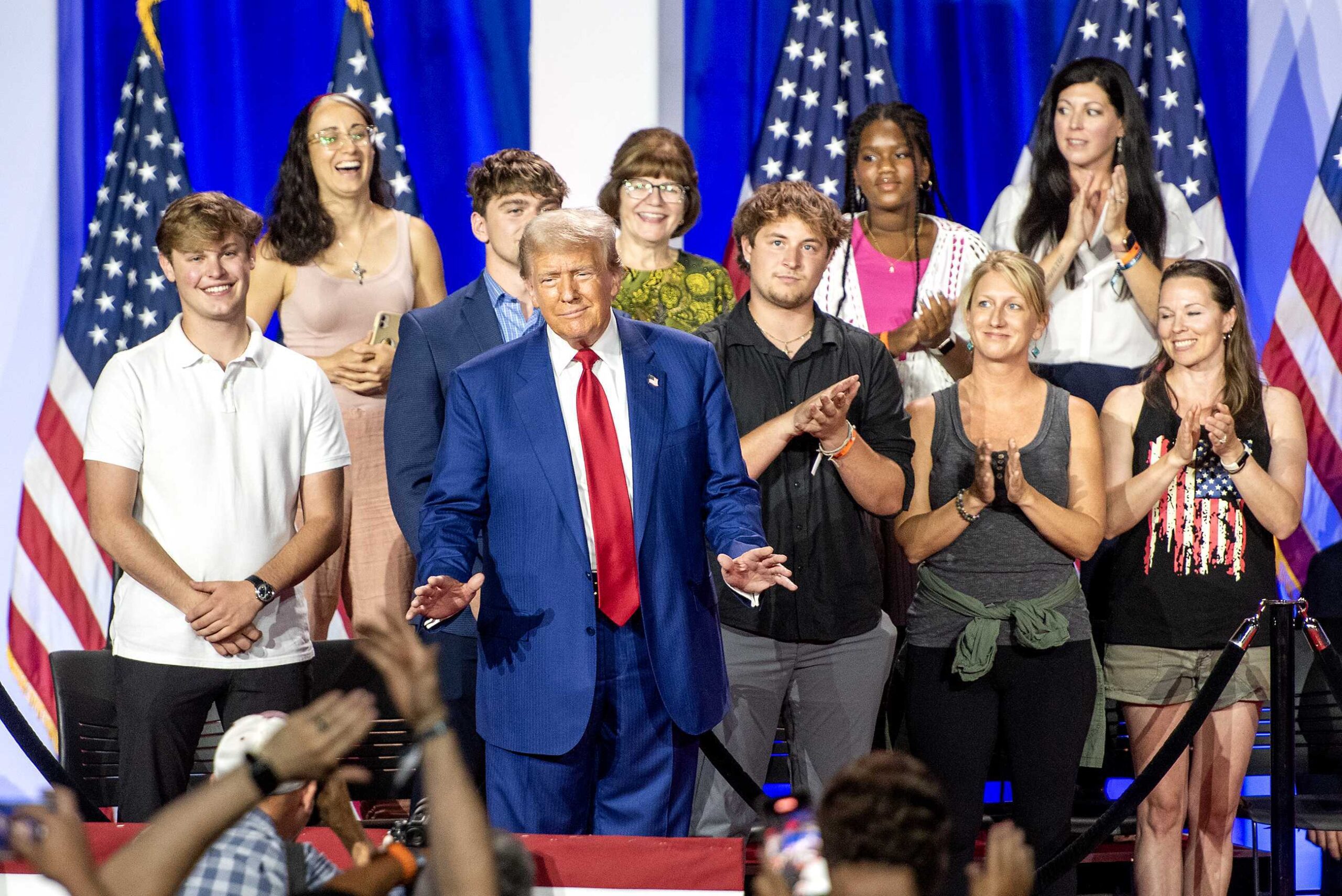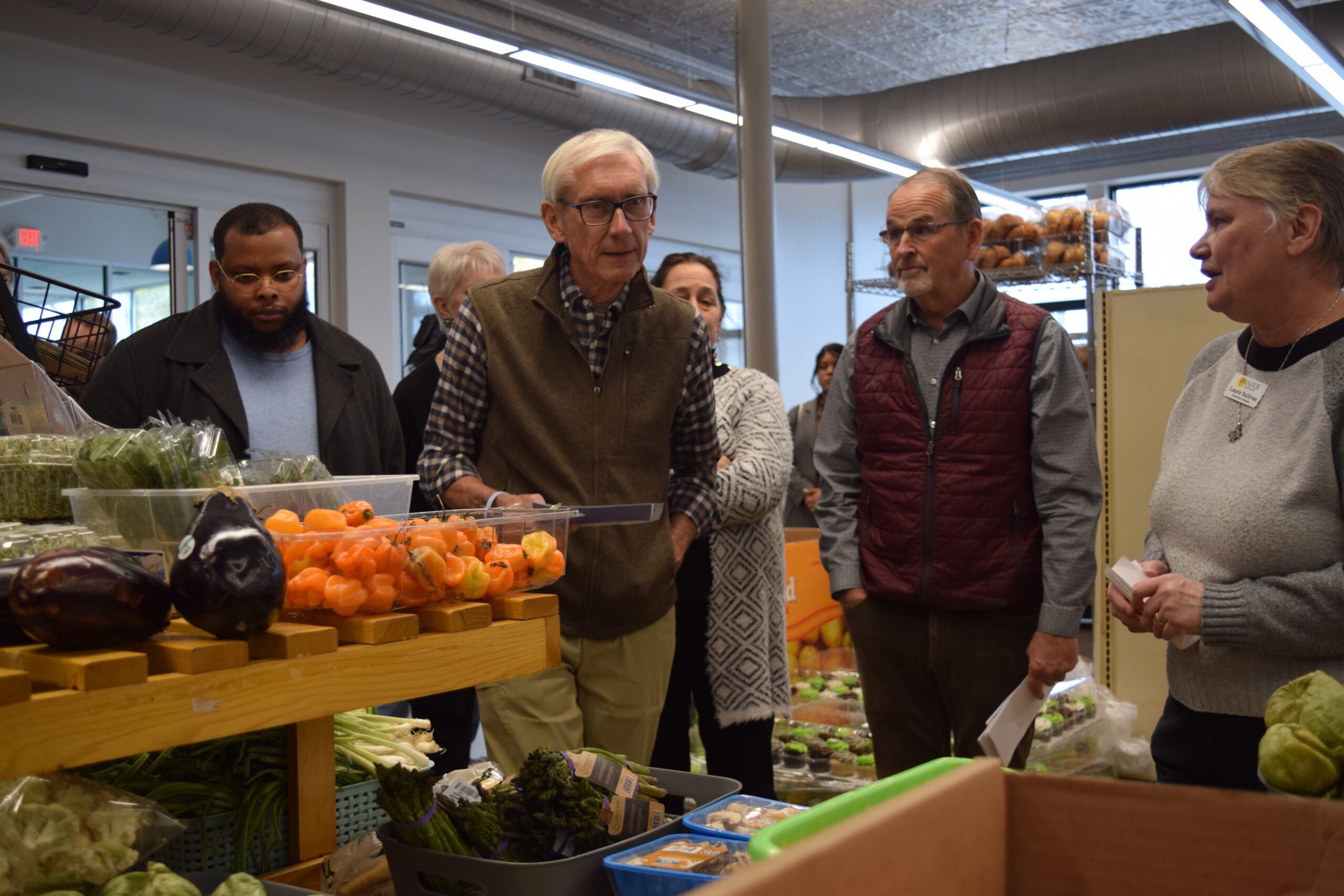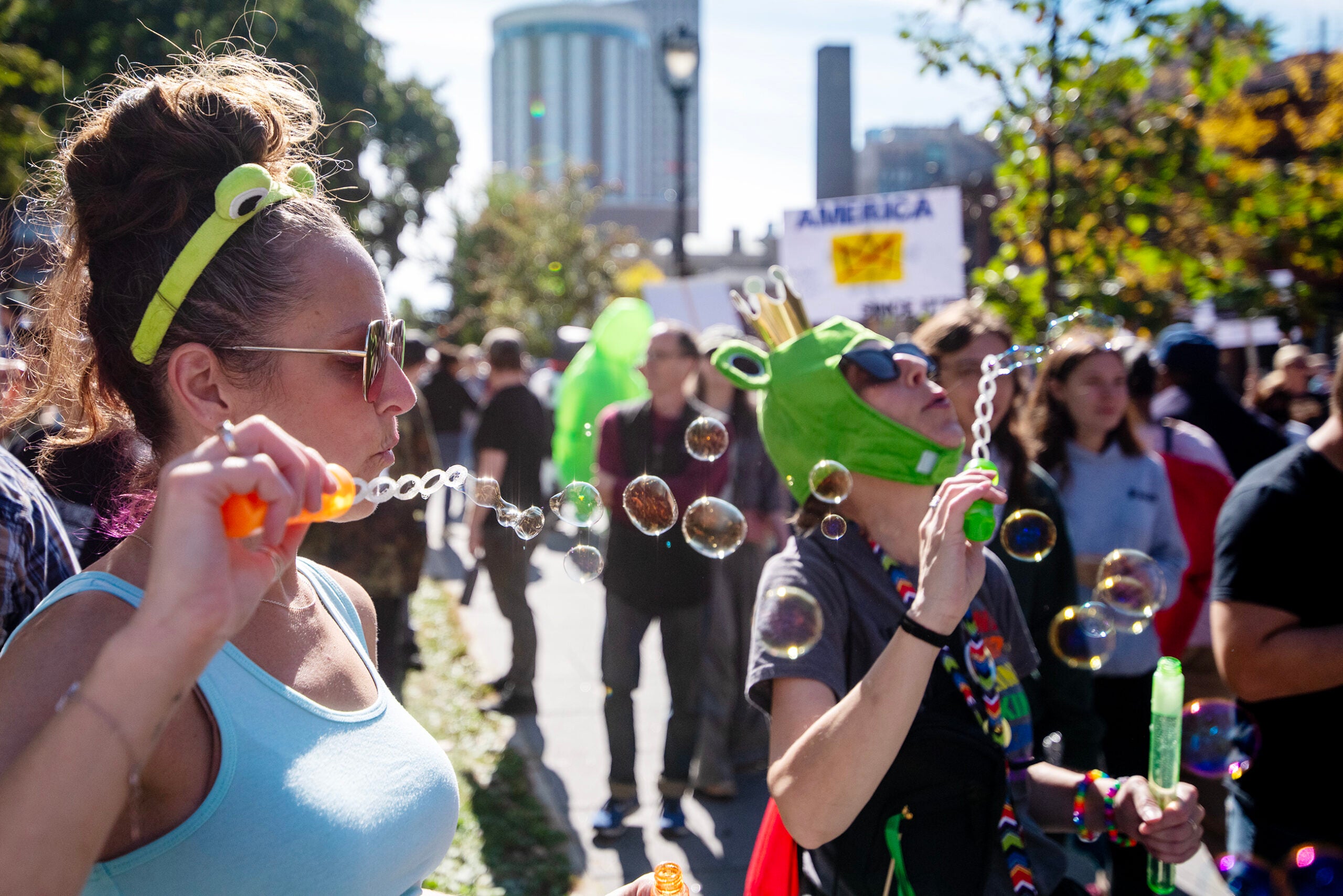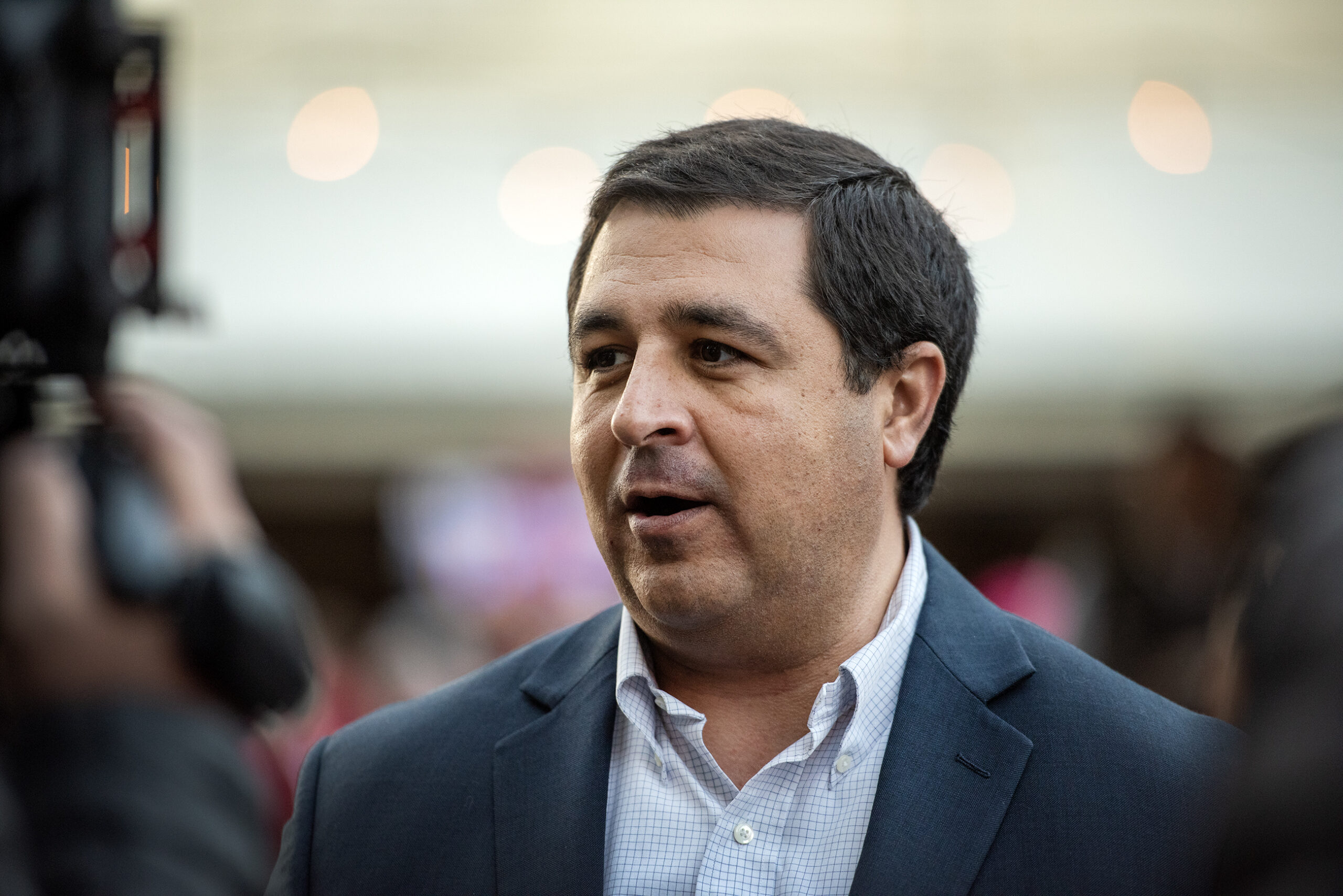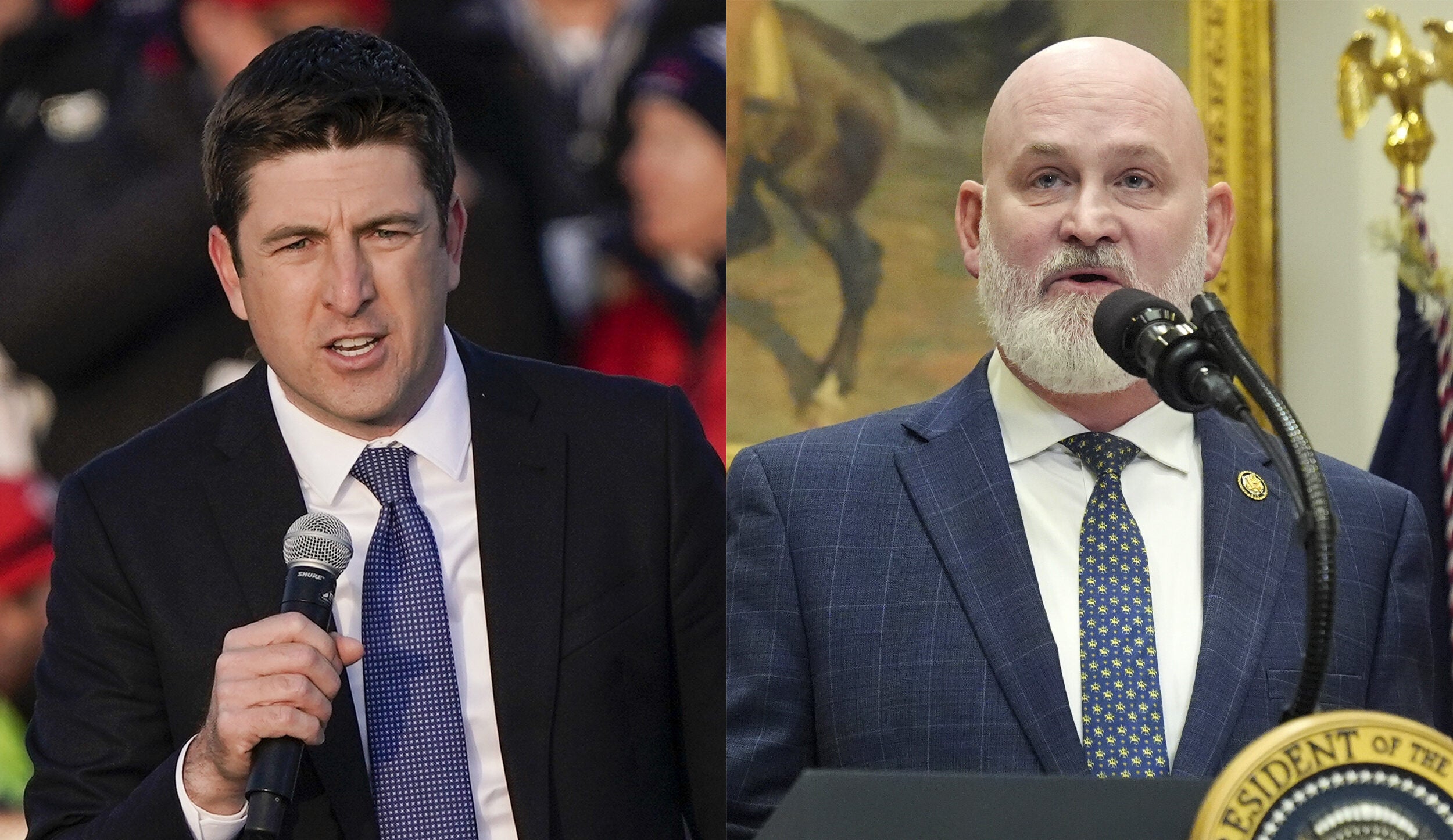Former President Donald Trump told supporters in La Crosse on Thursday evening that he would make the government or private insurance pay for in vitro fertilization treatments for people struggling to get pregnant.
During a 30-minute townhall discussion moderated by ex-Democratic U.S. Rep. Tulsi Gabbard, he also said he would fix inflation by opening up more energy production in America and called Democratic Vice President Kamala Harris a Marxist and communist.
The La Crosse Center convention center, which seats up to 8,000 people, was packed with eager Trump supporters.
News with a little more humanity
WPR’s “Wisconsin Today” newsletter keeps you connected to the state you love without feeling overwhelmed. No paywall. No agenda. No corporate filter.
When Trump entered the arena about an hour after his scheduled start time, he shook hands on his way to a stage with red carpet and adorned with 22 American flags. Behind the white chairs where Trump and Gabbard sat were 20 people selected by the former president’s campaign to ask questions.
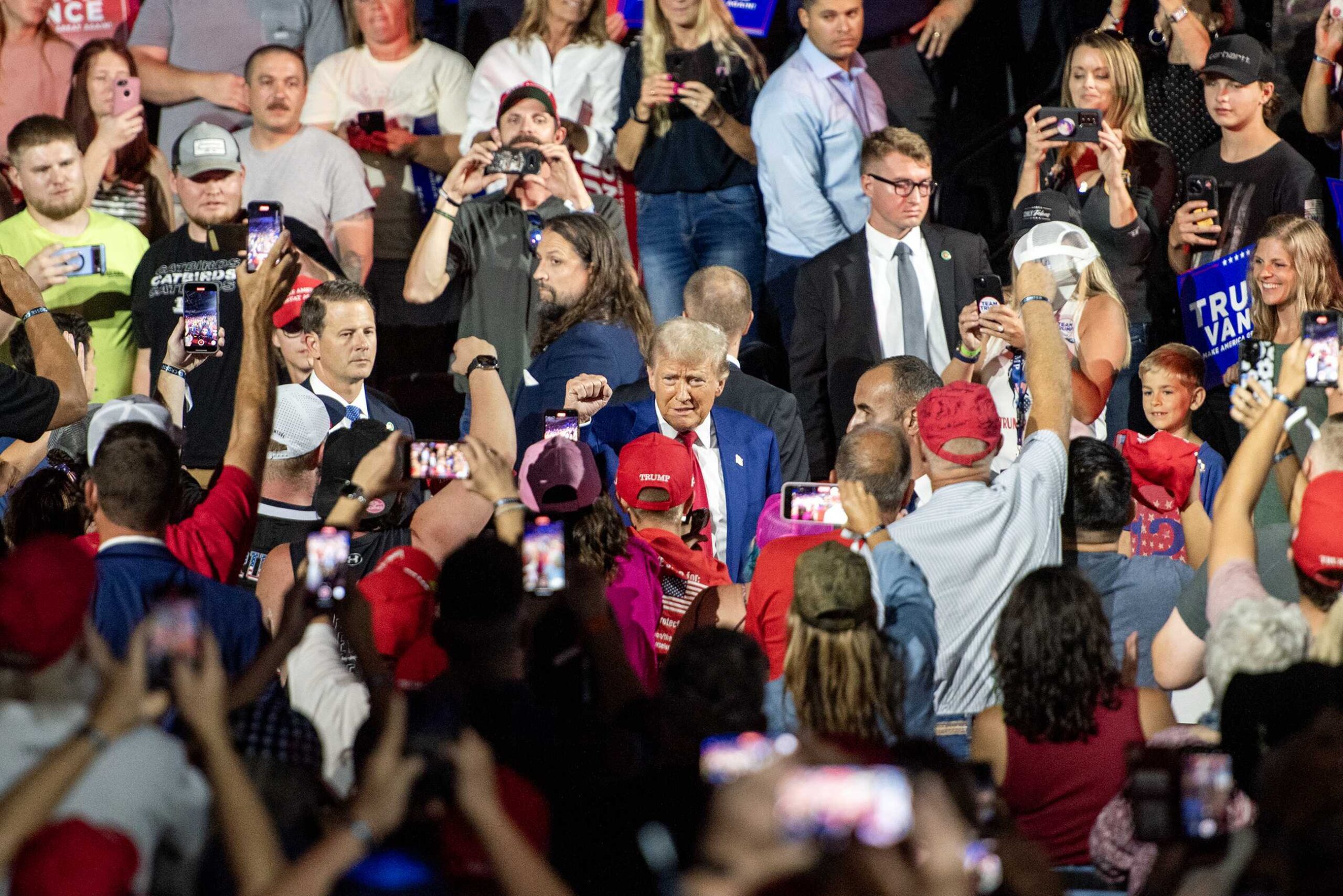
Trump told the crowd that he had a big speech prepared and didn’t know until he was told on the plane flying from a Michigan rally earlier in the day that the event in La Crosse would be a townhall format.
“I’m in the plane and looking over some material, and we were going to give you a hell of a speech tonight,” Trump said. ” They said, ‘No sir, it’s a town hall.’ I said, ‘Why doesn’t somebody tell me this stuff?’ And I don’t even have any idea who we’re doing it for. I don’t know — is it for a network or what?”
Gabbard’s first question to Trump started with a story about how she and her husband were unable to have children using in vitro fertilization treatments. She accused Democrats of saying Trump wants to ban IVF and asked the former president what he would say to women and couples who are afraid of not having access to IVF due to cost or efforts to ban it by some pro-life Republicans.
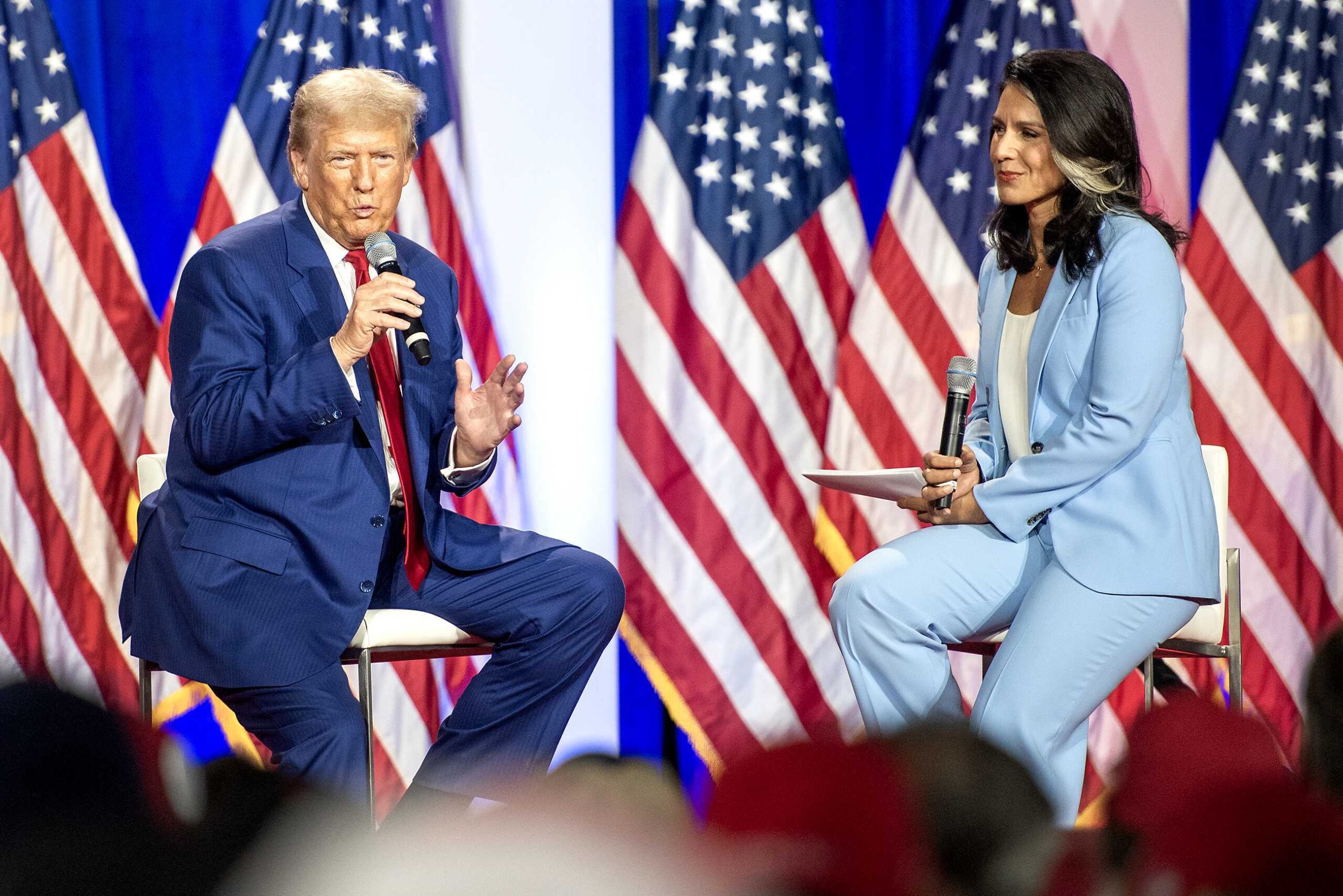
IVF has become caught up on the political fight over reproductive rights after the Alabama Supreme Court ruled in February that embryos are persons under the law. It was a decision in line with arguments from religious anti-abortion advocates who believe life begins at conception. But the ruling endangered IVF treatments, which create multiple embryos that are sometimes discarded or frozen.
In the months since that ruling, many GOP lawmakers have spoken in support of the procedure. But in June, Senate Republicans blocked legislation that would have given women the right to IVF and other fertility treatments.
Trump started his answer by touting his policy proposals to not tax tips on service industry worker wages and social security benefits. He also said he’s a strong supporter of IVF and said he would use the power of the government to make the procedure accessible to any couple that wants to try it.
“The government is going to pay for it, or we’re going to get or mandate your insurance company to pay for it, which is going to be great,” Trump said. “We’re going to do that.”
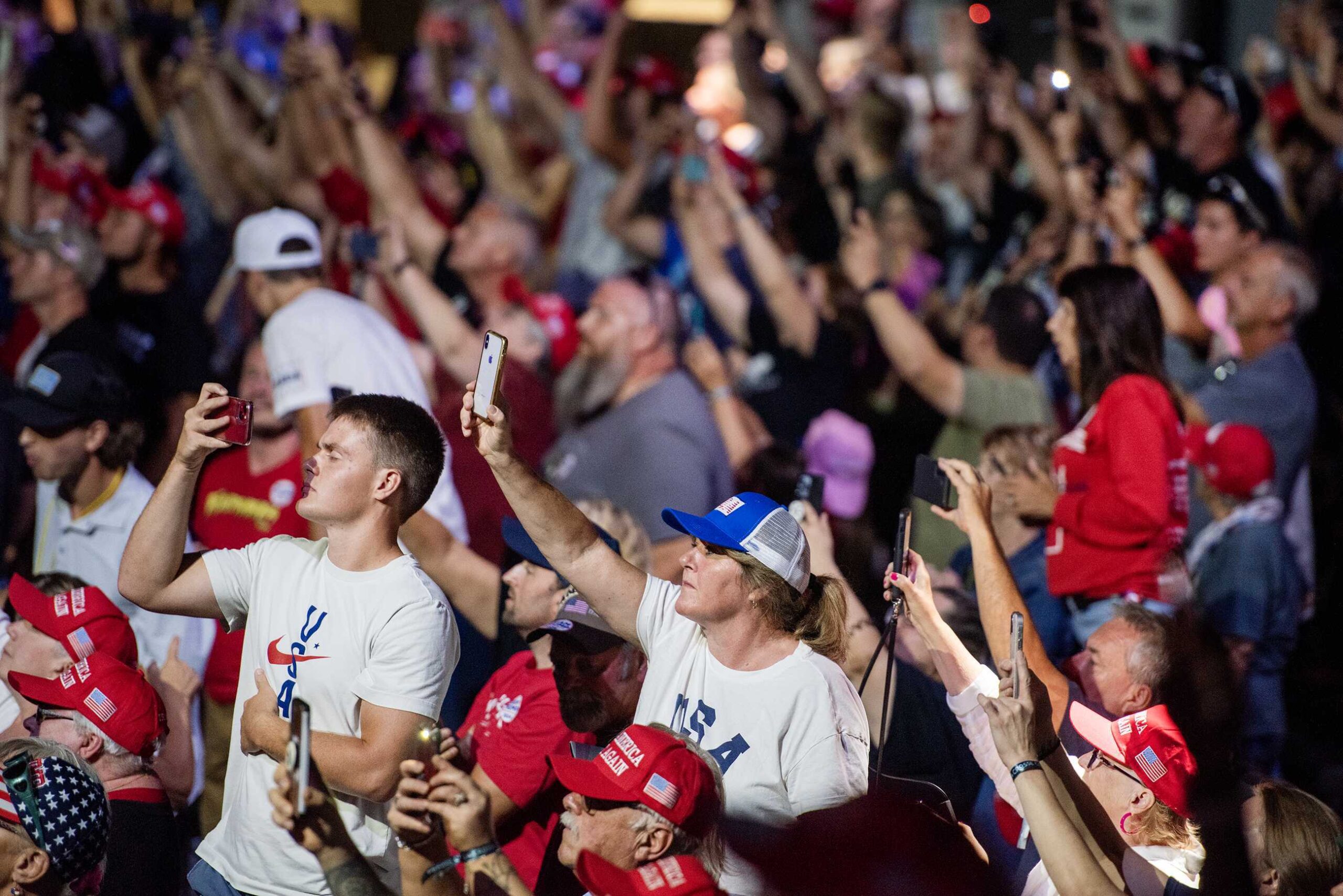
A woman, who identified herself as Amber from the Village of Cameron in Barron County, asked Trump about illegal immigration and said she worries migrants crossing the border are taking jobs away from Americans. She asked what Trump will do about it.
Trump said if reelected, he would close the southern border with Mexico and America will “become an unbelievable growth country” before pivoting to attacking Vice President Harris’ as being “for open borders.”
Luke Pulaske of Waukesha County, who is a junior at the University of Wisconsin-La Crosse, told Trump the November election will be his first time voting.
“A pound of meat has gone from $4 to almost $7,” Pulaski said. “I also would like to buy a home someday, but that seems just impossible. Now, what’s your plan to make life more affordable and bring down inflation?”
Trump said the answer to reducing inflation is to bring the cost of energy down by increasing domestic production of oil and natural gas.
“We’re going to become the energy capital of the world,” Trumps said. “We’re going to pay down our debt, and we’re going to reduce your taxes still further, and your groceries are going to come tumbling down, and your interest rates are going to be tumbling down. And then you’re going to go out, you’re going to buy a beautiful house, okay? “You’re going to buy a beautiful house. That’s called the American dream.”
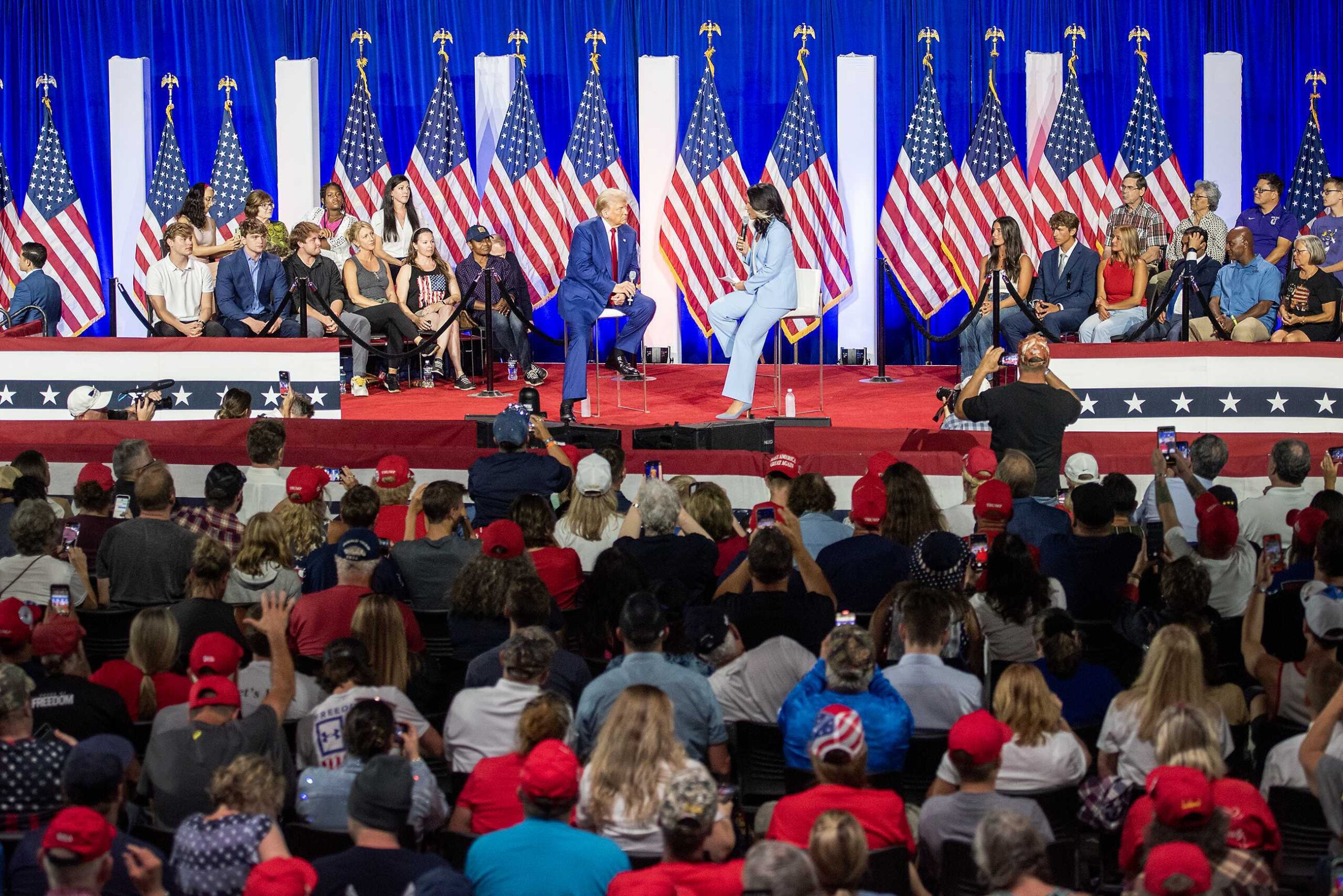
After Trump took six questions, Gabbard thanked him for taking the time to “have a conversation with the people of Wisconsin” and said the former president had “run out of time” in La Crosse.
After shaking more hands on his way out, attendees spilled onto the street and headed home. Walking with a group of friends, Pulaske told WPR he liked Trump’s answer to his inflation question. He said he was selected by the Trump campaign to appear on stage with the former president and that the campaign “peer reviewed” his question.
“I loved his answer,” Pulaske said. “Meeting him was (a) once-in-a-lifetime thing. And as someone that’s undecided and looking for someone to vote for this election — during my first time voting — it was good to have a live answer from one of the most famous people in the world, if not the most famous person in the world.”
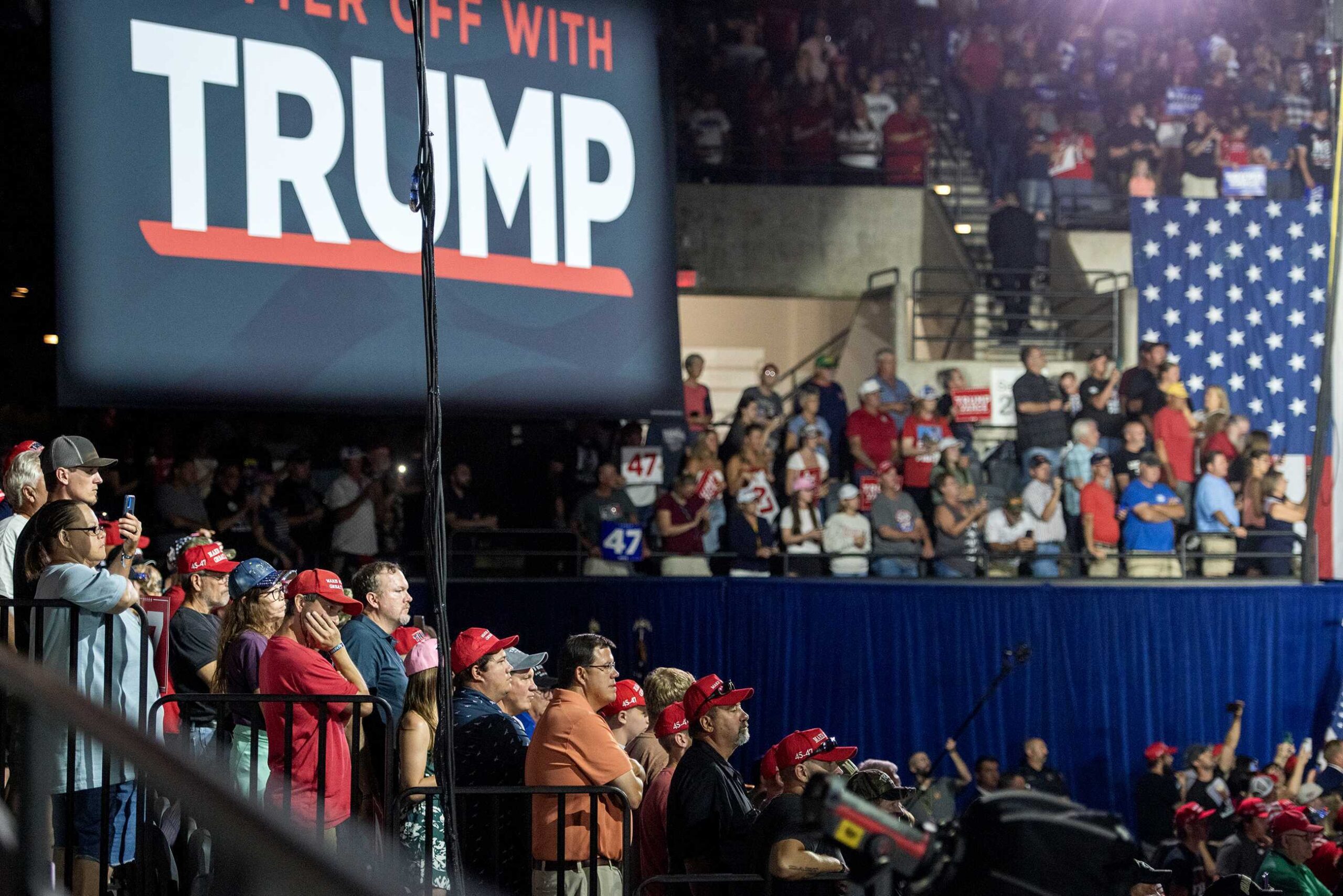
A statement from Democratic National Committee spokesperson Aida Ross released just as Trump’s townhall was scheduled to start in La Crosse said justices Trump appointed to the U.S. Supreme Court during his presidency “paved the way for GOP attacks on IVF” in states like Alabama.
“Americans have seen with their own eyes how Donald Trump overturned Roe v. Wade and paved the way for extreme MAGA Republicans to restrict IVF and pass cruel abortion bans across the country, hurting women and families,” Ross stated.
This was Trump’s first visit to Wisconsin since the Republican National Convention in Milwaukee just more than a month ago.
Trump’s visit to La Crosse and Vice President Kamala Harris’ rally in Eau Claire in early August after tapping Minnesota Gov. Tim Walz as her running mate underscore the significance of the western half of the state for both campaigns’ prospects Nov. 5.
The latest Marquette University Law School survey of registered voters in Wisconsin, released Aug. 7, showed Trump and Harris in a dead heat with 49 percent of respondents saying they support Harris compared to 50 percent for Trump.
Wisconsin Public Radio, © Copyright 2025, Board of Regents of the University of Wisconsin System and Wisconsin Educational Communications Board.

